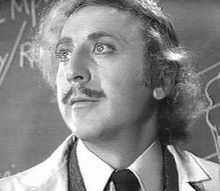EUS Equity
| 300px | |||||||
| Established | 2014 | ||||||
|---|---|---|---|---|---|---|---|
| equity@mcgilleus.ca | |||||||
| |||||||
IN PROCESS!!!! The EUS Equity Committee (EUS Equity) is a committee under the President's portfolio. EUS Equity promotes diversity, inclusion, and equity in engineering at McGill University. The committee is chaired by the Equity Commissioner. The committee communicates mostly through the EUS Equity facebook page.[1].
Contents
Mandate
Complaints
Events
Workshops
Forums
Borges' narrator describes how his universe consists of an enormous expanse of adjacent hexagonal rooms, each of which contains the bare necessities for human survival—and four walls of bookshelves. Though the order and content of the books is random and apparently completely meaningless, the inhabitants believe that the books contain every possible ordering of just
Fall Forums
Despite—indeed, because of—this glut of information, all books are totally useless to the reader, leaving the librarians in a state of suicidal despair. This leads some librarians to superstitions and cult-like behaviours, such as the "Purifiers", who arbitrarily destroy books they deem nonsense as they scour through the library seeking the "Crimson Hexagon" and its illustrated, magical books. Others believe that since all books exist in the library, somewhere one of the books must be a perfect index of the library's contents; some even believe that a messianic figure known as the "Man of the Book" has read it, and they travel through the library seeking him.
Winter Forums
The story repeats the theme of Borges' 1939 essay "The Total Library" ("La biblioteca total"), which in turn acknowledges the earlier development of this theme by Kurd Lasswitz in his 1901 story "The Universal Library" ("Die Universalbibliothek"): There should be at least 5 members serving at the bar at a time; however less are needed in the first hour of Blues Pub on average.
- Pullquote
- Certain examples that Aristotle attributes to Democritus and Leucippus clearly prefigure it, but its belated inventor is Gustav Theodor Fechner, and its first exponent, Kurd Lasswitz. [...] In his book The Race with the Tortoise (Berlin, 1919), Dr Theodor Wolff suggests that it is a derivation from, or a parody of, Ramón Llull's thinking machine [...T]he elements of his game are the universal orthographic symbols, not the words of a language [...] Lasswitz arrives at twenty-five symbols (twenty-two letters, the space, the period, the comma), whose recombinations and repetitions encompass everything possible to express in all languages. The totality of such variations would form a Total Library of astronomical size. Lasswitz urges mankind to construct that inhuman library, which chance would organize and which would eliminate intelligence. (Wolff's The Race with the Tortoise expounds the execution and the dimensions of that impossible enterprise.)
Other Events
UDL
Conferences
Conference on Diversity in Engineering
Faculty of Engineering
Mental Health
Here's a popout pdf
